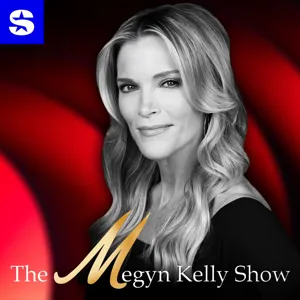Podcast Summary
Supreme Court Ends Use of Race Conscious Admissions in College: The Supreme Court ruled that Harvard and UNC violated the promise of color blindness in education by using race consciousness in admissions, effectively ending the use of such plans.
The Supreme Court made history last week with a series of significant rulings, including a seismic decision on affirmative action in college admissions. Sarah Parshall Perry, senior legal fellow at The Heritage Foundation, joined Morning Wire to discuss the most notable cases and their implications moving forward. The affirmative action cases, Students For Fair Admissions versus Harvard College and University of North Carolina, saw arguments on both sides regarding equal protection under the 14th Amendment and title 6 of the Civil Rights Act. The conservative majority ruled in both cases that the universities had violated the Supreme Court's promise of color blindness, effectively ending the use of race consciousness admission plans. The decision came despite dissent from the three liberal justices. The court was asked to overrule a previous case, Grutter v Bollinger, from 2003. The majority's significant points included reaffirming the promise of color blindness in education and recognizing the need for race-neutral alternatives in college admissions.
Supreme Court's Fisher v. UT Decision Questions Future of Race in College Admissions: The Supreme Court's Fisher v. UT decision questioned the future of race in college admissions, with Justice Thomas advocating for an end and universities allowed to consider race's impact on applicants' lives.
The Supreme Court's decision in Fisher v. University of Texas, while not explicitly overruling the Grutter v. Bollinger case, saw Justice Thomas arguing for an end to the use of race in college admissions. The court acknowledged the historical significance of race in education but expressed concern over its continued use and the lack of an end in sight. The ruling did not eliminate the consideration of race entirely, but allowed universities to consider its impact on applicants' lives in relation to their unique qualities or experiences. The decision is expected to have significant implications, with some anticipating a shift away from race-based admissions and others advocating for its continued use to promote diversity. Ultimately, the ruling leaves the future of race-conscious admissions policies uncertain.
Harvard's race-based admissions rule doesn't apply to military academies: Harvard's race-based admissions rule is unique to federally funded universities, while military academies face different regulations
The Harvard University decision regarding race-based admissions only applies to federally funded institutions of higher education and not military academies. This is because military academies are subject to different rules and regulations due to their status as part of the United States government. In another case, Graf versus DeJoy, a Christian mail carrier sought an accommodation to not work on Sundays due to religious beliefs. However, this request was denied based on a 1977 decision, Transworld Airlines versus Hardison, which holds that employers do not have to provide religious accommodations if it would cause undue hardship. These cases highlight the complexities and nuances of balancing constitutional protections and specific circumstances in areas like education and religion.
Supreme Court Clarifies Religious Accommodations in Workplace: The Supreme Court set a clearer standard for religious accommodations in the workplace under Title 7, requiring both minimal financial impact and substantial burden to be met.
The Supreme Court clarified the standard for religious accommodations in the workplace under Title 7 of the Civil Rights Act. The Court ruled that the de minimis standard, which allowed employers to discriminate against religious employees with minimal financial impact, was misapplied and that both de minimis and substantial burden language must be met for Title 7 to be satisfied. This decision should provide clarity and relief for religious employees who want to practice their faith without fear of losing their jobs. In another ruling, the Supreme Court struck down President Biden's student loan forgiveness plan, with the conservative majority ruling that the administration overstepped its authority and that the plaintiffs lacked standing due to not suffering a concrete injury.
Courts Uphold Statutory Text and Intent during National Emergencies: Courts have emphasized the importance of adhering to the text and intent of statutory law during national emergencies, as seen in the Heroes Act and 303 Creative cases.
The Heroes Act, which was passed to provide regulatory relief during national emergencies, did not give the administration the authority to fundamentally transform an existing student loan forgiveness program into something new and expansive during the COVID-19 pandemic. In the 303 Creative case, the court ruled in favor of a graphic designer's First Amendment rights, holding that she could not be forced to use her expressive medium to communicate messages with which she disagreed. This was not a religious freedom case, but rather a free speech case, and the court carefully distinguished it from other anti-discrimination cases. In both cases, the court emphasized the importance of adhering to the text and intent of the underlying statutory law.
Web wedding websites are protected by the First Amendment: Individuals cannot be forced to communicate a message against their will in creating web wedding websites, upholding free speech tradition
Web wedding websites are considered a form of expressive speech protected by the First Amendment, even if the creator has a commercial interest in selling them. The court ruled that individuals cannot be forced to communicate a message against their will. This decision upholds the long-standing tradition of free speech in the US. Thanks for tuning in to MorningWire, and we hope you found this discussion with Sarah Parchel Perry informative. Sarah is a leading expert on digital media law, and her insights provide valuable context for understanding the legal landscape of online businesses. This ruling is a reminder of the importance of individual freedom of expression in the digital age, and it sets a precedent for future cases involving online content creation.





